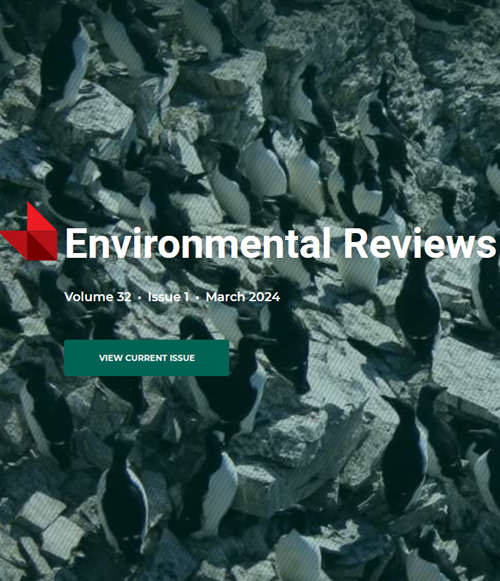Emerging Pollutants of Water Supplies and the Effect of Climate Change
IF 5.1
3区 环境科学与生态学
Q2 ENVIRONMENTAL SCIENCES
引用次数: 2
Abstract
Emerging pollutants (EPs) are the contaminants of concern in water systems. These are mainly due to anthropogenic activities and are not always removed during water treatment, eventually affecting the quality of water supply systems (WSSs). These pollutants vary from organic pollutants such as pharmaceuticals, pesticides, and flame retardants to inorganic pollutants like heavy metals or illicit drugs. Currently, there is a lack of adequate research on the chronic health effects of these pollutants. In addition, climate change plays a role in immobilizing these pollutants. Consequently, considering the increasing effects visible in many countries, the rising levels of contaminants have strained the effectiveness of water treatment facilities. As water supply is an essential service to communities, it is necessary to ensure the reliability against risks of EPs. Therefore, it is important to protect the health and safety of consumers. Climate change has brought threats to water infrastructures, like many others. This review examined the effect of climate change on EPs in water supplies by providing a detailed review of the contaminants, evaluating their potential toxicity, and determining the appropriate water treatment technologies. The role of the WSS in EP immobilization was examined in addition to the potential effect of climate change. This review of different critical and relevant literature aids with the identification of current research gaps. Based on the identified gaps, a research framework was developed for the future investigation of EPs.供水新出现的污染物和气候变化的影响
新兴污染物(EPs)是水系统中令人关注的污染物。这些主要是由于人为活动造成的,并且在水处理过程中并不总是被清除,最终影响供水系统的质量。这些污染物从有机污染物如药品、杀虫剂和阻燃剂到无机污染物如重金属或非法药物不等。目前,对这些污染物的慢性健康影响缺乏充分的研究。此外,气候变化在固定这些污染物方面也起着作用。因此,考虑到在许多国家可见的日益严重的影响,污染物水平的上升使水处理设施的效率变得紧张。由于供水是社区的基本服务,因此有必要确保EPs的可靠性,以抵御风险。因此,保护消费者的健康和安全非常重要。气候变化给水利基础设施和其他许多基础设施带来了威胁。本综述通过对污染物的详细审查,评估其潜在毒性,并确定适当的水处理技术,研究了气候变化对供水中EPs的影响。除了气候变化的潜在影响外,还研究了WSS在EP固定中的作用。本文回顾了不同的关键文献和相关文献,有助于确定当前的研究差距。基于发现的差距,为未来研究EPs制定了一个研究框架。
本文章由计算机程序翻译,如有差异,请以英文原文为准。
求助全文
约1分钟内获得全文
求助全文
来源期刊

Environmental Reviews
环境科学-环境科学
自引率
3.50%
发文量
45
期刊介绍:
Published since 1993, Environmental Reviews is a quarterly journal that presents authoritative literature reviews on a wide range of environmental science and associated environmental studies topics, with emphasis on the effects on and response of both natural and manmade ecosystems to anthropogenic stress. The authorship and scope are international, with critical literature reviews submitted and invited on such topics as sustainability, water supply management, climate change, harvesting impacts, acid rain, pesticide use, lake acidification, air and marine pollution, oil and gas development, biological control, food chain biomagnification, rehabilitation of polluted aquatic systems, erosion, forestry, bio-indicators of environmental stress, conservation of biodiversity, and many other environmental issues.
 求助内容:
求助内容: 应助结果提醒方式:
应助结果提醒方式:


